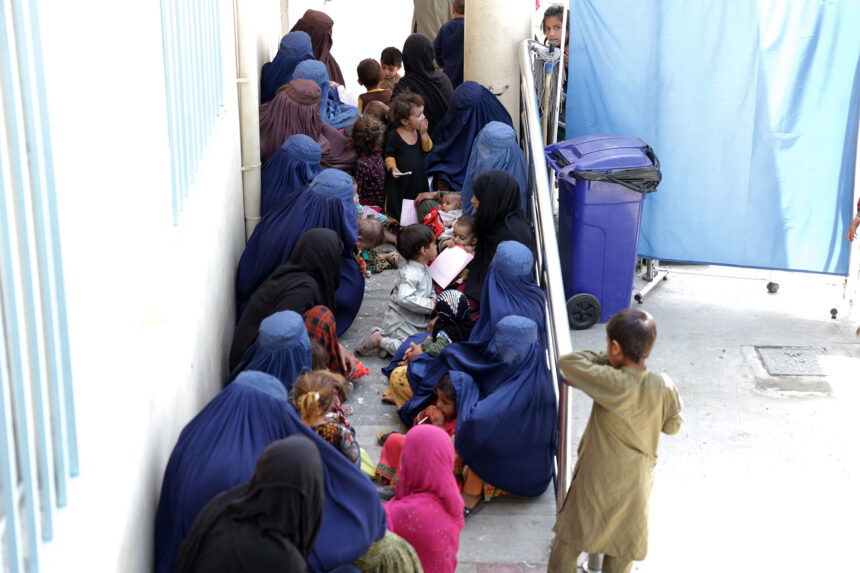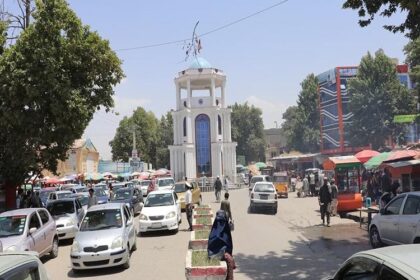RASC News Agency: The World Health Organization (WHO) has issued an urgent and chilling warning: Afghanistan is teetering on the brink of a humanitarian catastrophe, as tens of thousands of vulnerable returnees most of them women, children, and the elderly pour into the country from Iran and Pakistan under extreme and life-threatening conditions. According to WHO statistics, from April to early July 2025, more than 836,000 people have entered Afghanistan via major crossing points including Islam Qala, Torkham, Milak, and Spin Boldak. What should be a moment of return and relief has instead become a descent into chaos, as families arrive with no possessions, no support system, and no access to basic medical care.
Among these returnees are pregnant women, newborns, unaccompanied minors, and elderly individuals many of whom are gravely ill, malnourished, wounded, or suffering from communicable diseases. Dehydration, open wounds, untreated infections, and advanced stages of malnutrition are rampant. These individuals are not merely returning home they are walking into a vacuum of institutional collapse, where the basic right to healthcare is a distant hope. Despite severe limitations, WHO and its partners have thus far managed to provide primary medical services to over 84,000 people at the borders and in reception centers. At the overwhelmed Torkham crossing alone, emergency health teams have treated more than 850 trauma cases, working through the night in overstretched conditions.
WHO has also administered over 198,000 essential vaccine doses, especially targeting polio and measles, in a desperate attempt to prevent the outbreak of preventable epidemics among children. But these efforts, while lifesaving, are only a stopgap. The scale of need far outpaces the capacity of the humanitarian response. Dr. Edwin Salvador, WHO’s representative in Afghanistan, voiced an alarming plea:
“We are witnessing waves of mothers, children, and elderly people many of them sick, unsupported, and traumatized arriving in a country that has neither the infrastructure nor the political will to care for them. Our resources are overstretched, our teams are exhausted, and without urgent global support, we will not be able to continue providing even the most basic care.”
WHO has deployed 17 mobile medical teams and set up prefabricated clinics in high-traffic areas. Yet, after screening over 394,000 people, the agency has identified critical shortages in maternal care, mental health support, clean water access, and essential medicines. Border clinics at Islam Qala and Milak are overwhelmed. There are not enough ambulances, no functional isolation units, and most alarmingly, a severe shortage of healthcare workers especially female doctors. This shortage, however, is not simply logistical. It is deliberately engineered. Under Taliban rule, the public health system has been crippled by misogynistic restrictions that ban women from working in most healthcare settings. In areas where female doctors are not available because the regime has banned them from practicing female patients are routinely denied treatment, even in life-threatening situations. This is not negligence. It is state-sponsored gender apartheid enforced under the guise of religious authority.
The Taliban’s refusal to rebuild healthcare infrastructure and its ideological assault on female medical personnel has rendered Afghanistan’s health system incapable of responding to emergencies. Clinics without female staff have become dead zones for women, where mothers and daughters are turned away, untreated and unheard. These decisions are not accidents they are policies. Even as Afghanistan reels under the weight of this humanitarian emergency, Taliban authorities have made no serious efforts to support border communities, expand access to healthcare, or collaborate with humanitarian actors. Instead, they have actively undermined life-saving interventions by restricting the mobility and work of female aid workers, hampering supply routes, and obstructing the international response with bureaucratic red tape and ideological rigidity.
WHO has now warned that unless urgent funds are mobilized, core services like emergency treatment, vaccination campaigns, and maternal care may collapse within weeks. The agency has laid out a $2 million emergency operational plan for the next three months. But without immediate donor support, that plan remains just ink on paper while lives are lost every day. As families return to a homeland hollowed out by authoritarian misrule, Afghanistan is rapidly becoming a graveyard of global indifference and Taliban cruelty. The situation is no longer a warning it is a reckoning. Dr. Salvador concluded with an unequivocal appeal:
“We are facing 17 global emergencies right now, and Afghanistan is at the very top of that list. Budget shortfalls don’t just slow our response they end lives. The time for action is now not just with money, but with political courage and unwavering solidarity. This is about dignity, humanity, and survival.”






